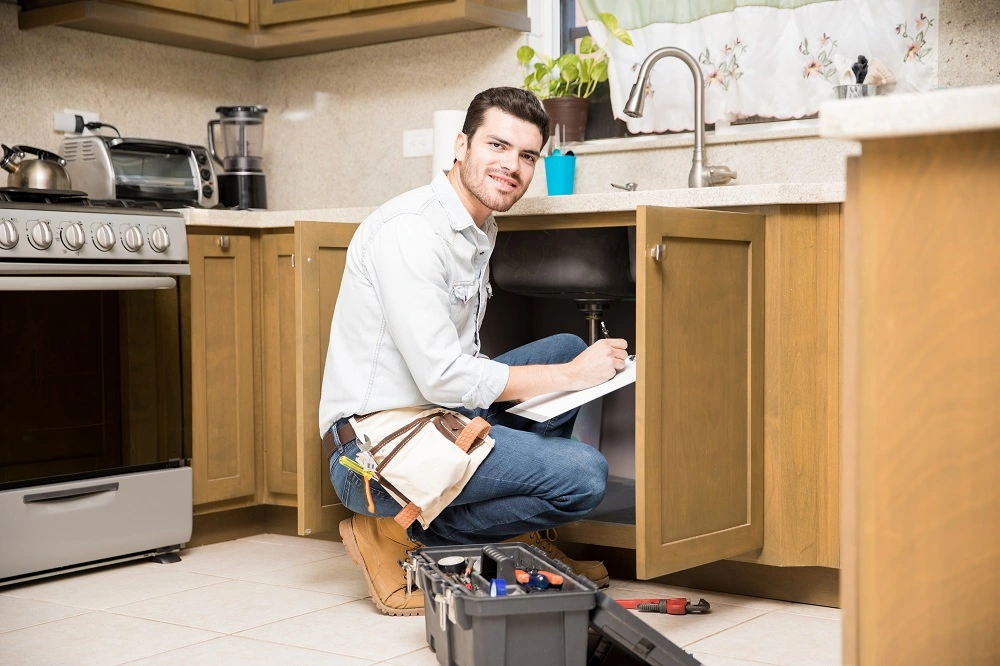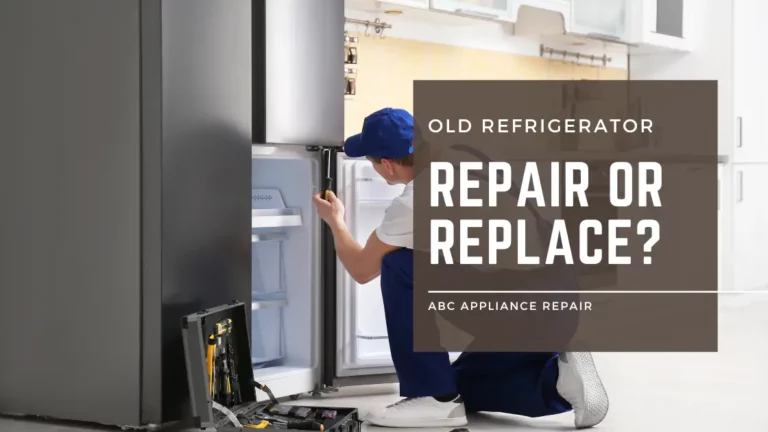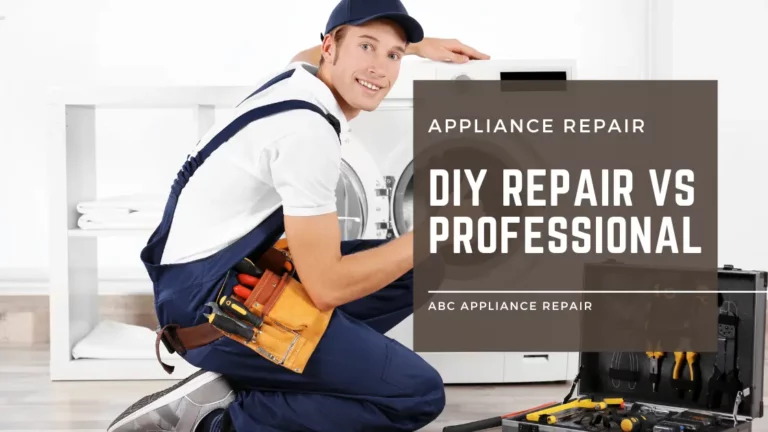In today’s fast-paced world, household appliances play a crucial role in our daily lives, making our routines more efficient and convenient. However, like all things, appliances are not immune to wear and tear. Understanding the factors that influence appliance repair costs can help you make informed decisions about repairs, replacements, and maintenance.
In this comprehensive guide, we’ll delve into the intricacies of appliance repair costs in the United States, providing you with valuable insights to navigate this important aspect of homeownership.
1. Introduction to Appliance Repair Costs in the United States
A. Importance of Understanding Appliance Repair Costs
Appliances are significant investments, and when they malfunction, the cost of repairs can take a toll on your budget. By comprehending the factors that contribute to repair costs, you can plan your finances effectively and ensure your appliances remain in optimal condition for years to come.
B. Overview of Common Household Appliances
Before we dive into the world of repair costs, let’s take a moment to familiarize ourselves with some of the common household appliances that are an integral part of our daily lives:
- Refrigerators and Freezers
- Washing Machines and Dryers
- Dishwashers
- Ovens and Stoves
These appliances provide convenience and enhance our quality of life, but they can also present challenges when they require repairs.
2. Factors Affecting Appliance Repair Costs

A. Age and Condition of the Appliance
The age of your appliance plays a significant role in determining repair costs. Older appliances may require more frequent repairs due to wear and tear, potentially driving up your overall maintenance expenses. Additionally, the condition of the appliance prior to the repair can influence the complexity of the task at hand.
B. Type and Brand of the Appliance
Different types and brands of appliances come with varying repair costs. High-end or specialized brands may have more expensive replacement parts, impacting the overall repair bill. Additionally, the complexity of the appliance’s design and technology can contribute to higher repair costs.
C. Complexity of the Repair Needed
The complexity of the repair required is a key factor in determining costs. Simple fixes, such as replacing a faulty switch, are generally more affordable than intricate repairs involving multiple components or delicate calibration.
D. Availability and Cost of Replacement Parts
The availability and cost of replacement parts can significantly impact repair expenses. Rare or discontinued parts may be harder to source and could lead to higher costs. It’s essential to consider the availability of parts when assessing the feasibility of a repair.
3. Average Appliance Repair Costs by Type of Appliance
A. Refrigerators and Freezers
Cost Range for Common Repairs
Repairing refrigerators and freezers can encompass a range of issues, including compressor problems, defrost timer malfunctions, and thermostat issues. On average, these repairs can cost between $200 and $400, depending on the complexity of the problem and the parts required.
Tips for Minimizing Repair Costs
To minimize the need for costly repairs, consider these tips:
- Regularly clean the condenser coils to maintain efficiency.
- Check and maintain proper door seals to prevent air leaks.
- Avoid overloading the appliance, which can strain its components.
B. Washing Machines and Dryers
Cost Range for Common Repairs
Repairing washing machines and dryers can experience a range of problems, from drum replacements to motor issues. Repair costs typically fall between $150 and $350, varying based on the specific problem and the type of appliance.
Tips for Minimizing Repair Costs
Follow these guidelines to prolong the life of your washing machine and dryer:
- Clean the lint trap regularly to prevent clogs and improve efficiency.
- Avoid overloading the machine, as this can lead to excessive wear and tear.
C. Dishwashers
Cost Range for Common Repairs
Common dishwasher repairs include pump replacements and control panel issues. Repair costs generally range from $100 to $300, depending on the complexity of the repair and the brand of the appliance.
Tips for Minimizing Repair Costs
To keep your dishwasher running smoothly, consider these preventive measures:
- Avoid overloading the dishwasher, which can strain its components.
- Use the appropriate detergent to prevent clogs and damage to the appliance.
D. Ovens and Stoves
Cost Range for Common Repairs
Ovens and stoves may require repairs for faulty igniters, heating elements, or control panel malfunctions. Repair costs typically range from $100 to $300, depending on the extent of the issue and the parts needed.
Tips for Minimizing Repair Costs
To maintain your oven and stove and reduce the likelihood of repairs:
- Clean up spills and splatters promptly to prevent buildup.
- Avoid using abrasive materials that could damage the appliance’s surfaces.
4. The Role of Labor Costs in Appliance Repairs
A. Hourly Rates for Appliance Repair Services
The labor costs associated with appliance repairs can vary based on factors such as the complexity of the repair, the type of appliance, and the service provider. On average, you can expect to pay between $50 and $150 per hour for professional repair services.
B. Additional Charges to Consider
In addition to hourly rates, some repair services may charge additional fees, including:
Diagnostic Fee: This fee covers the cost of identifying the issue with your appliance.
Travel Fee: If the repair service has to travel a significant distance to your location, you may incur a travel fee.
It’s important to inquire about these charges upfront and ensure you have a clear understanding of the total cost before proceeding with the repair.
2. Saving Money on Appliance Repair Costs
A. Considerations Before Attempting DIY Repairs
While do-it-yourself (DIY) repairs can save you money, they come with potential risks:
Risks Involved with DIY Repairs
DIY repairs can void warranties and lead to further damage if not done correctly. It’s crucial to assess your skill level and the complexity of the repair before attempting it yourself.
Resources/Guides Available for DIY Enthusiasts
For those comfortable with DIY repairs, there are numerous online resources and guides available. These can provide step-by-step instructions and helpful tips for tackling common appliance issues.
B. Seeking Quotes from Multiple Service Providers
To ensure you’re getting the best deal, consider obtaining quotes from multiple appliance repair service providers. Compare their pricing, services, and customer reviews to make an informed choice.
6. Extended Warranty or Homeowner’s Insurance Coverage
A. Benefits and Limitations of Extended Warranties
Extended warranties can offer peace of mind by covering repairs beyond the manufacturer’s warranty period. However, they may come with limitations, such as exclusions for certain types of damage or specific repair scenarios.
B. Assessing Whether Appliance Repair Is Covered by Homeowner’s Insurance
Some homeowner’s insurance policies may cover appliance repairs under certain circumstances, such as damage caused by a covered peril (e.g., fire, water damage). Review your policy and consult your insurance provider to understand the extent of your coverage.
2. What to Look for in an Appliance Repair Service
A. Qualifications and Certifications
When selecting an appliance repair service, consider the following qualifications:
NATE Certification for HVAC Appliances
For heating, ventilation, and air conditioning (HVAC) appliances, look for technicians with NATE (North American Technician Excellence) certification. This certification ensures the technician has a high level of expertise in HVAC systems.
Certified Service Technicians
Certified technicians have undergone training and demonstrated proficiency in appliance repair. Choosing certified professionals can enhance the quality of the service you receive.
B. Clear Pricing Structure and Warranty Policy
A reputable repair service should provide a transparent pricing structure and a clear warranty policy. This transparency ensures you’re aware of the costs and guarantees associated with the repair.
C. Positive Customer Reviews and Ratings
Research online reviews and ratings to gauge the satisfaction levels of previous customers. Positive feedback indicates a service provider’s reliability and professionalism.
8. Tips for Preventing Appliance Repairs
A. Regular Maintenance Practices for Different Appliances
To prevent costly repairs, incorporate these maintenance practices into your routine:
Refrigerators
Clean condenser coils regularly to maintain efficiency.
Check and maintain proper door seals to prevent energy loss.
Washing Machines
- Avoid overloading the machine to prevent strain on components.
- Use the recommended amount of detergent to prevent clogs.
B. Effective Troubleshooting Techniques for Common Issues
Empower yourself with basic troubleshooting skills to address common appliance problems:
Oven Temperature Calibration
Calibrate your oven’s temperature periodically to ensure accurate cooking results.
Basic Dishwasher Maintenance
Regularly clean the dishwasher filter and spray arms to prevent clogs and maintain optimal performance.
9. When to Consider Replacing an Appliance Rather Than Repairing It
A. Factors Influencing the Decision
Deciding between repair and replacement depends on various factors:
- Compare repair costs to the appliance’s remaining lifespan.
- Consider the appliance’s energy efficiency and potential savings from a newer model.
B. Energy Efficiency Considerations
Newer appliances often offer improved energy efficiency, resulting in long-term cost savings on utility bills.
FAQs (Frequently Asked Questions)
Estimating repair costs involves assessing factors such as the type of appliance, the nature of the problem, and the cost of replacement parts. Consulting with a professional repair service can provide you with a more accurate estimate.
Extended warranties can provide peace of mind, but their value depends on your specific situation and the terms of the warranty. Consider the appliance’s age, repair history, and the cost of the warranty compared to potential repair costs.
DIY repairs can be cost-effective, but they come with risks. Attempt DIY repairs only if you have the necessary skills and tools. For complex issues or if you’re unsure, it’s advisable to seek professional assistance.
When selecting a repair service, consider their qualifications, certifications, pricing transparency, and customer reviews. Obtaining quotes from multiple providers can help you make an informed decision.
Factors such as frequent breakdowns, repair costs exceeding the appliance’s value, and outdated technology are indications that it may be more cost-effective to replace the appliance. Consider its energy efficiency and potential savings as well.
Conclusion
Understanding appliance repair costs empowers homeowners to make informed choices about their valuable investments. By considering the age, type, and condition of appliances, as well as seeking professional advice and performing regular maintenance, you can minimize repair expenses and extend the lifespan of your appliances. Whether you opt for professional repairs, attempt DIY fixes, or explore warranty and insurance coverage, your proactive approach will contribute to a more efficient, cost-effective, and stress-free home appliance experience.







